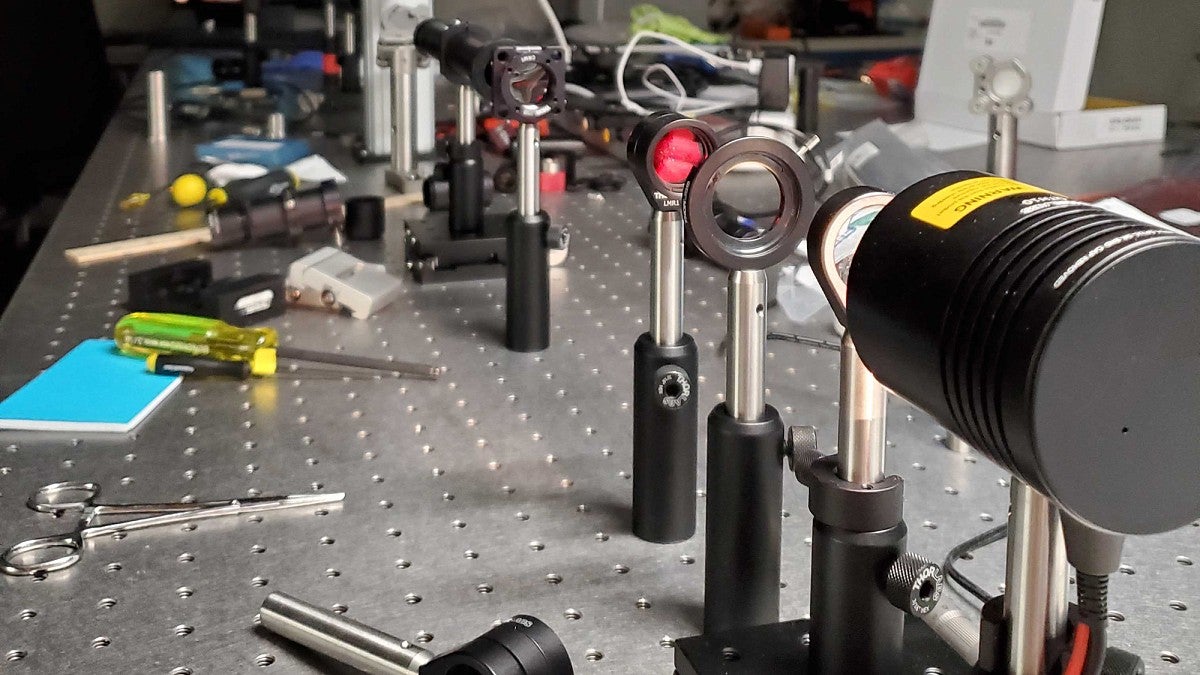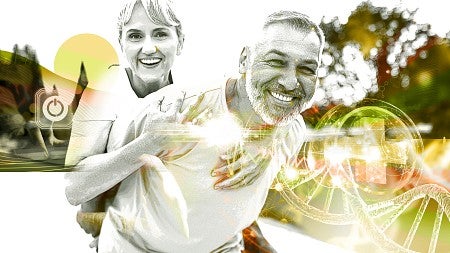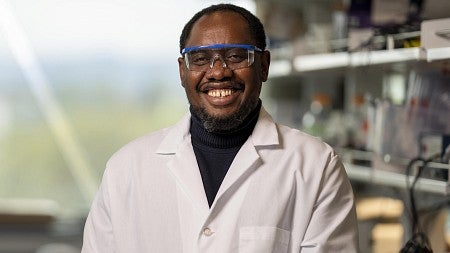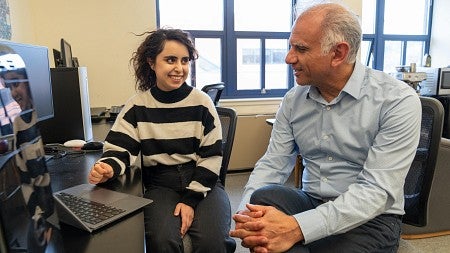
Lasting Legacy
Talented researcher follows in her grandmother’s footsteps—and paves the way for future scientists
By Laurie Galbraith • October 7, 2020
3 min read
When Madi Scott chose to double major in chemistry and physics at the University of Oregon, she thought she was breaking new ground in her family. Quickly, she discovered that the pull to the sciences might have been based in her DNA.
“Right after I started college, I learned that my grandma graduated from Wellesley College of Massachusetts with a degree in chemistry,” says Scott, a 2020 graduate. “She dug up this analytical chemistry paper that she’d published back in the 1950s or ’60s when she worked for Oregon Health and Science University doing primate research.”
That heritage is alive and well in Scott—an emerging scientist who is headed to the Massachusetts Institute of Technology and also champions efforts to help all groups excel in science.
Scott was a researcher for Cathy Wong, an assistant professor of chemistry and biochemistry. One of her lab’s research areas is laser spectroscopy—examination of the interactions between light and matter.
Scott studied the effect of factors such as temperature on the composition of organic semiconducting films, used in electronic devices such as solar cells and LEDs. She sought to quantify the impact of such factors on the formation of crystals on the surface of the film. Creating highly crystalline organic semiconductor films is vital to achieving high performance in electronic devices.
To conduct her research, Scott built a specialized microscope to image the surfaces of a sample. To interpret the data, she also learned to write code in the computer-programming language called Python.
“It’s not like the tabletop microscope you think of for high school biology. It’s actually a couple of lenses and a sample holder on a rail,” Scott says. “We have a camera hooked up to a computer. I move the sample around and take images by clicking my mouse.”
Scott’s creation of her own microscope stood out to Wong, who says the student cultivated expertise that distinguished her from her peers.
Scott, Wong notes, learned to use a femtosecond laser, which can perform precise measurements by emitting pulses of light that last no longer than 50 millionths of a trillionth of a second.
“Madi is one of only a handful of undergraduates across the country who is well-trained in this difficult measurement technique,” says Wong.
As Scott’s confidence grew, so did her successes—and the recognition for them.
The Clark Honors College student was a Goldwater Scholarship recipient; awarded to approximately 200 US sophomores and juniors each year, Scott received one of three presented to the university in 2019. She also received a National Science Foundation Graduate Research Fellowship—as an undergraduate. This fall, she begins her PhD in physical chemistry at MIT.
The accolades and opportunities are important to her. But it was her work in another capacity that helped ensure students of all backgrounds also get opportunities in STEM research.
As president of the local chapter of the Society for the Advancement of Chicanos/Hispanics and Native American in Science, Scott organized professional development and social events for undergraduate STEM students, ranging from resume-building and science-poster workshops to STEM-themed trivia nights.
Inspired by both her grandmother and Wong, Scott has served as an example to underrepresented groups in science and research. She is mindful of the responsibility.
“It’s nice to know that because I’m here,” she says, “maybe that gives more women the opportunity to be here in the future.”
Laurie Galbraith, MS ’20 (journalism), is a staff writer for the Clark Honors College.




